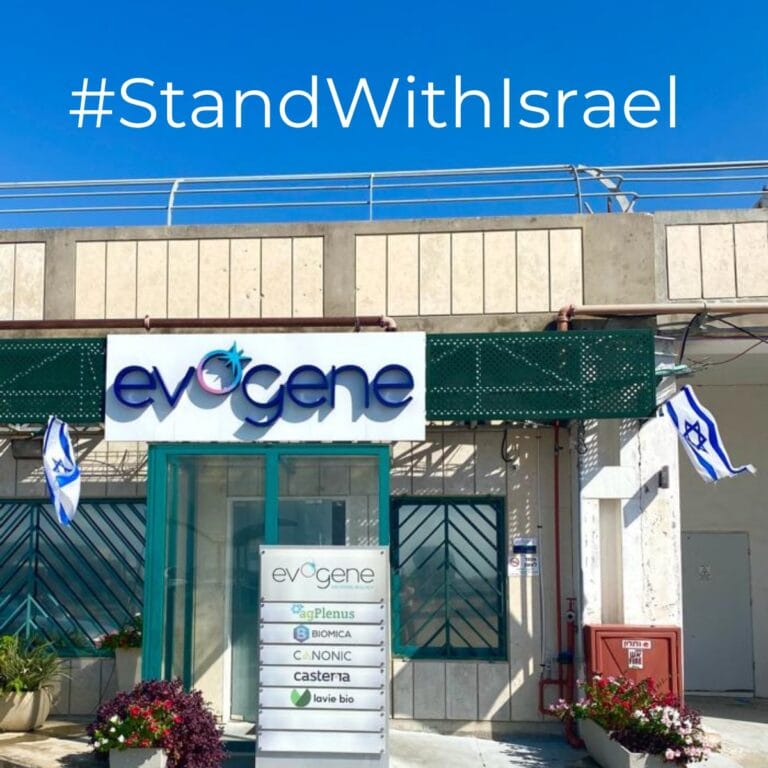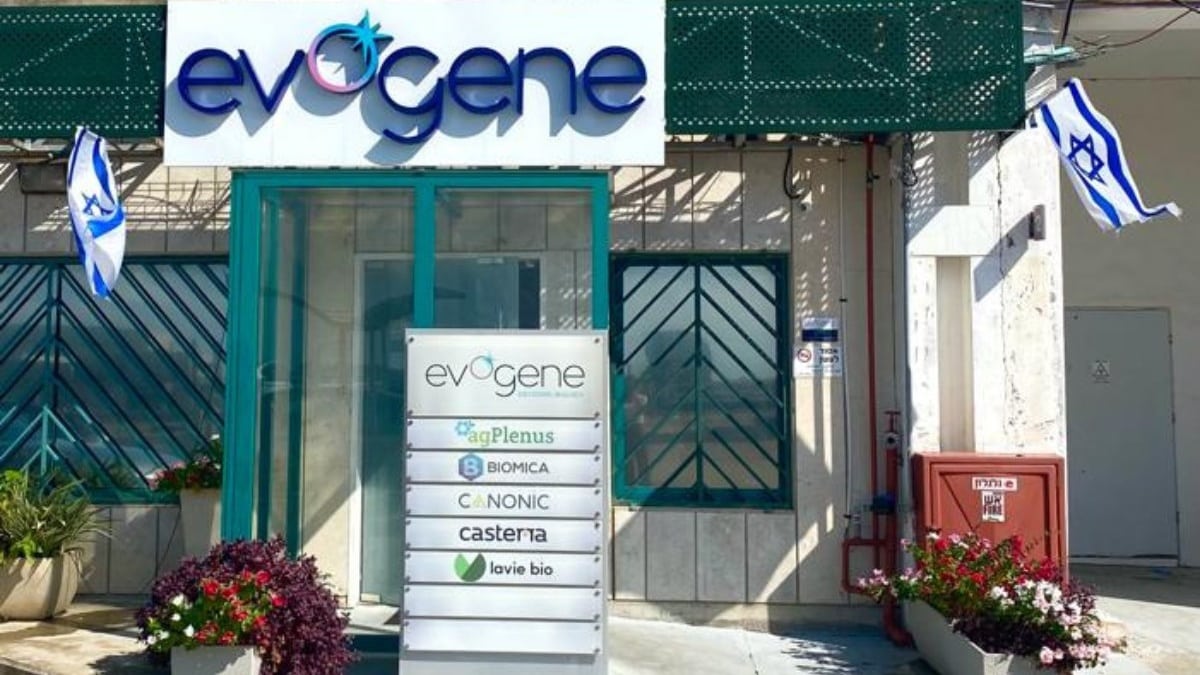Israeli computational biology company Evogene isn’t a startup. CEO Ofer Haviv has led the company for the past 21 years, including through times when Israel was under attack from Lebanon in 2006 and from Gaza in 2009 and 2014.
The current war has hit the company harder than ever before. An Evogene employee and his wife were murdered in their home in Kfar Aza, one of the Gaza border communities infiltrated by hordes of Hamas terrorists on October 7.
Evogene’s headquarters is in Rehovot — a city that’s a hub for life-sciences companies but is also in the range of fire from Gaza. Several missiles have hit Rehovot directly for the past nearly four weeks, and residents and workers are often running to bomb shelters.
Despite these losses and stresses, Evogene continues to run its daily operations, conducting trials for its five subsidiaries and research projects in greenhouses that are not protected from incoming rocket fire.

The company further demonstrated its resilience with an October 31 announcement of a new collaboration with two southern Israeli partners: aquaculture company Colors Farm of Hazeva and Ben-Gurion University of Beersheva.
Sustainably grown crustaceans
Leveraging a grant from the Israel Innovation Authority, the alliance will develop gene-editing technology meant to improve crustacean traits including growth rate, disease resistance and environmental adaptation.
The partners noted an escalating global demand for seafood. The global shrimp market, which stood at about $66 billion in 2022, is predicted to increase to $88 billion by 2028. The global crayfish market, valued at about $16.19 billion in 2023, and is expected to continue expanding rapidly as well.
These growing markets necessitate an increasing emphasis on sustainable aquaculture practices, and that’s where this collaboration comes in.
Evogene will leverage its advanced GeneRator AI tech-engine to provide predictions for optimal guide RNAs (gRNAs), thereby facilitating precise gene editing through CRISPR technology.
Colors Farm will tailor solutions to the gene-editing requirements of giant freshwater prawn and white leg shrimp.
Prof. Amir Sagi of BGU, a world-renowned crustacean researcher, will develop a gene-editing platform for crayfish (also known as crawfish) and spearhead the research and development process.
Sagi said, “We are honored to be part of this project. Gene editing is a powerful tool that can enhance the economics and sustainability of crustacean production. We believe this collaboration will lead to significant advances in the aquaculture industry.”
“We are pleased to collaborate with Colors Farm and BGU on this significant endeavor,” said Nir Arbel, CPO of Evogene.
“Through precise modifications of crustacean genomes, gene editing can enhance desired traits and minimize environmental impact. We believe that through this collaboration Evogene will be able to leverage its knowledge and algorithmic capabilities to design predictive gene editing solutions for organisms that lack complete and exhaustive genomic and proteomic data. We believe this will open up the gene editing market to many additional agri-tech companies.”
Evogene uses its tech engines to develop products through strategic partnerships and collaborations, and its five subsidiaries including:
- Biomica, developing and advancing novel microbiome-based therapeutics to treat human disorders;
- Lavie Bio, developing and commercially advancing microbiome based ag-biologicals;
- AgPlenus, developing next- generation ag chemicals for effective and sustainable crop protection;
- Canonic, developing medical cannabis products based on decoding plant genetics for optimized therapeutic effect; and
- Casterra Ag, developing and marketing superior castor seed varieties producing high yield and high-grade oil content, for the biofuel and other industries.

















